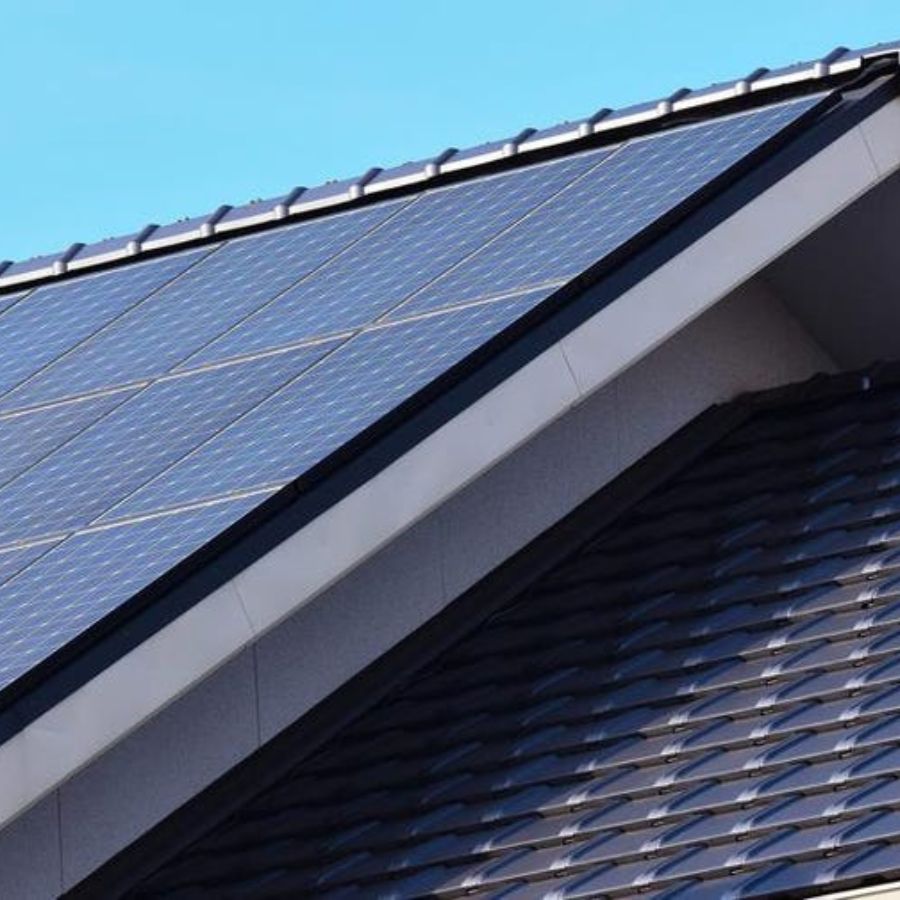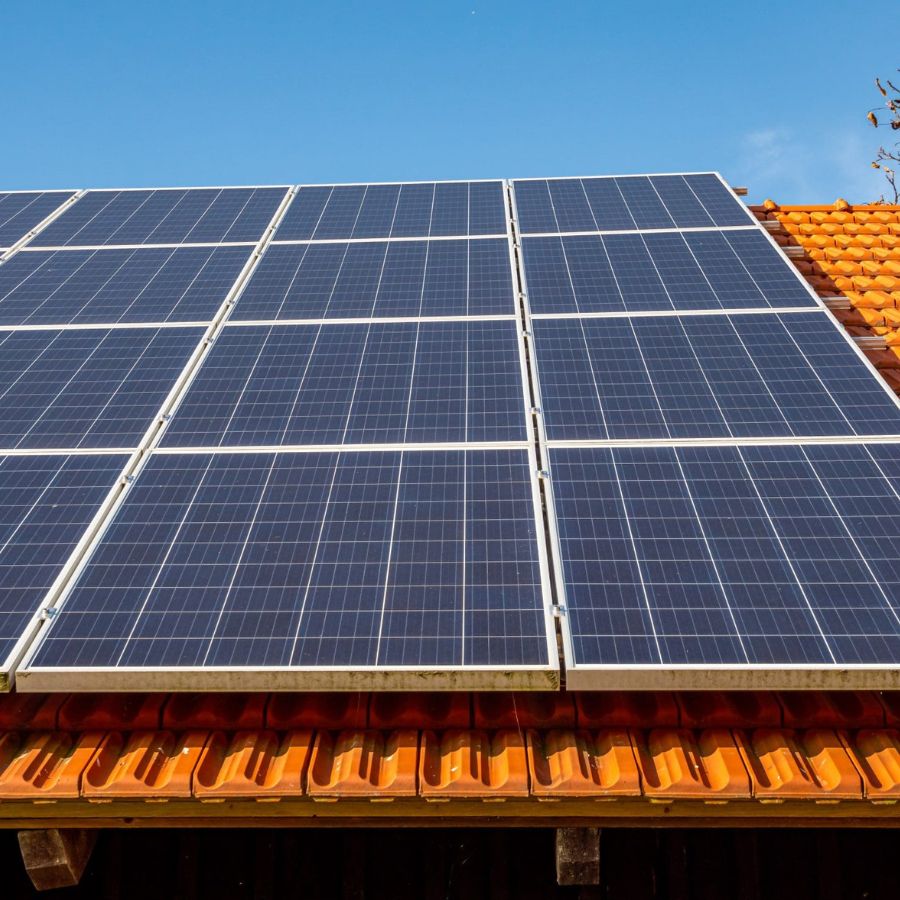Solar Panel Output Winter vs Summer UK
Solar Panel Output Winter vs Summer UK – Solar power has emerged as a frontrunner in the race to combat climate change as the world transitions towards cleaner and more sustainable energy sources. In the United Kingdom, a country known for its temperate climate and often cloudy skies, understanding the dynamics of solar panel output throughout the year is crucial for maximizing the potential of solar energy systems.
This article will discuss the fascinating comparison of solar panel output in winter vs. summer in the UK.
The UK Climate and Solar Energy Potential
The UK’s climate showcases its diversity through distinct seasons, each presenting a range of weather conditions. While the nation may lack the constant sunlight of sunnier counterparts, its solar energy potential remains a force to reckon with. Even when skies are overcast, solar panels persist in generating electricity, albeit at a diminished efficiency compared to the brilliance of clear, sunny days. Again, this underscores the adaptability and reliability of solar power generation in the UK.
The ability of solar panels to operate and generate power under such varying conditions highlights their resilience, making them a viable renewable energy source even in regions known for less-than-ideal weather patterns. As the UK continues its pursuit of sustainable energy solutions, harnessing solar power could play a pivotal role in reducing its carbon footprint and promoting a greener future.
Summer Radiance
The summer months, spanning from June to August, offer the most favorable conditions for solar energy production in the UK. Longer daylight hours and a higher solar angle increase exposure to sunlight, contributing to higher solar panel output. During this period, solar panels operate closer to their maximum capacity, converting sunlight into electricity more efficiently.
One of the crucial factors influencing solar panel performance in the summer is the sun’s angle. The sun’s angle changes with the seasons due to the tilt of the Earth’s axis. In the summer, the sun’s rays are more direct, meaning they have to travel through less of the Earth’s atmosphere, reducing the likelihood of scattering and absorption. This results in higher-intensity sunlight reaching the solar panels, leading to greater electricity generation.
Furthermore, the longer daylight hours during summer allow solar panels to capture sunlight for extended periods, maximizing energy production. It is particularly beneficial for residential solar installations, as excess energy generated during sunny days can be stored or fed back into the grid for later use or compensation.
Winter Challenges
Solar energy production faces new challenges as the UK transitions into the winter months. From December to February, the days are shorter, and the sun’s angle is lower in the sky. This reduced exposure to sunlight directly impacts solar panel output. Cloudy and overcast conditions are more common, leading to decreased intensity of sun reaching the panels.
While winter may present a less sunny scenario, solar panels still have the potential to generate electricity. Modern solar panel technology has improved their ability to capture diffuse light, which is prevalent on cloudy days. However, it’s important to note that the efficiency of solar panels decreases in lower light conditions, which means that their output will be lower compared to the summer months.
The Role of Temperature and Temperature Coefficients

Temperature also plays a role in solar panel efficiency. It might seem counterintuitive, but solar panels perform better in cooler temperatures. High temperatures can cause a decrease in the efficiency of solar cells. Besides, this is why in some cases, solar panels might produce more energy during the winter months when the ambient temperatures are lower.
Temperature coefficients come into play here. These coefficients indicate how a solar panel’s performance changes with temperature variations. Solar panels can operate more efficiently, whereas, in hotter temperatures, their efficiency might drop in colder temperatures. This phenomenon can help offset some of the energy loss due to reduced sunlight during the winter months.
Optimizing Solar Energy Generation Year-Round
It’s vital to consider a few strategies to make the most of solar energy generation in the UK, regardless of the season:
Optimal Panel Placement
The efficiency of solar panels depends on their installation angle and orientation. Ensuring proper alignment can substantially enhance their ability to generate electricity. In the UK, positioning solar panels with a tilt corresponding to the location’s latitude is a fundamental guideline. This alignment maximizes the panel’s exposure to the sun’s rays, optimizing solar panel function and power production.
Tilting the solar panels at the latitude angle facilitates direct and prolonged exposure to sunlight throughout the day, capturing the most energy possible. This approach is especially crucial in regions like the UK, where sunlight can be less consistent. Correctly positioned solar panels use sunlight, increasing efficiency and overall energy output.
While this initial angle alignment is an essential starting point, it’s important to note that the optimal angle might vary based on specific factors. Such factors include seasonal variations and shading from nearby structures. Regular monitoring and potential adjustments can further fine-tune solar panel orientation, ensuring a continuous and efficient generation of clean, renewable energy.
Regular Maintenance
The consistent production of power from solar panels relies heavily on their cleanliness. Regular upkeep to keep them free from dirt, dust, and debris is essential for optimal light absorption, which directly influences their ability to generate electricity. This maintenance is particularly crucial during winter when rain, the natural cleanser, might be less frequent, leaving panels vulnerable to reduced power output.
Dirt and debris accumulation on solar panels can obstruct direct sunlight and hinder energy absorption. Besides, this is particularly problematic during the winter when sunlight is less due to lower angles and shorter days. By routinely cleaning the panels, you ensure they can use available sunlight, maintaining efficiency and maximizing power generation.
Periodic cleaning not only prevents a decline in power output but also prolongs the lifespan of your solar panels. Neglecting maintenance can lead to permanent damage over time, affecting their overall performance. Embracing a proactive approach to solar panel care, especially in less favorable seasons, guarantees a steady and dependable stream of electricity generation. It also contributes to the longevity of your investment.
Battery Storage
The Energy Saving Trust recommends harnessing the power of battery storage in conjunction with your solar panel system. This smart strategy involves capturing surplus electricity generated on sunny days and storing it in batteries. Doing so creates a reserve of energy that can be utilized during cloudy periods or at night, effectively balancing out energy production throughout the year.
Battery storage systems enable you to optimize your energy usage, making the most of the electricity your solar panels produce. This method ensures a consistent power supply and enhances your system’s efficiency and reliability. With the ability to tap into stored energy when sunlight is limited, you reduce your reliance on the grid, lower energy costs, and contribute to a more sustainable energy future.
Efficiency Improvements
Elevating the performance of your solar power generation involves a strategic investment in high-quality solar panels. Opting for panels equipped with improved temperature coefficients can counterbalance efficiency losses experienced during winter.
Temperature coefficients indicate how solar panels react to temperature fluctuations. Investing in panels with favorable coefficients ensures they maintain their productivity even in colder weather. By choosing this proactive approach, you enhance the ability of your solar panels to work efficiently year-round, producing electricity consistently regardless of seasonal changes.
Superior quality solar panels demonstrate resilience against adverse weather conditions, including the colder temperatures of winter. Again, this investment boosts your system’s energy output and reinforces your commitment to sustainable energy practices. As winter arrives, your efficient solar panels generate power, contributing to a greener future while optimizing your return on investment.
Smart Energy Management and Consumption
Implementing a smart energy management system can enhance the efficiency of your solar energy system. These systems allow you to monitor real-time energy production and consumption. Understanding when your solar panels are generating the most energy and when your energy needs are highest helps schedule energy-intensive activities during peak production times. Besides, this can help you make the most of the energy you generate and reduce your reliance on the grid during cloudy or low-energy periods.
Additionally, consider using energy-efficient appliances and lighting to reduce energy consumption. LED lights, energy-efficient appliances, and smart thermostats can all contribute to a more sustainable energy usage pattern, making your solar energy go further.
Seasonal Adjustments and Monitoring
Recognizing the changing patterns of sunlight throughout the year, making seasonal adjustments to your solar energy system is beneficial. During the summer, your panels might produce more energy than you consume, leading to excess energy. In this case, consider adjusting your system to tilt slightly away from direct south-facing orientation. Also, this can help prevent overproduction during the sunniest months.
Conversely, in the winter, you might want to tilt your panels slightly more towards the south to capture as much sunlight as possible, given the lower sun angle. Some solar energy systems even have automated tracking mechanisms that adjust the angle of the panels throughout the day to optimize energy capture.
Regular monitoring of your solar energy system’s performance is essential. Many modern solar installations come with monitoring tools that allow you to track energy production and spot any potential issues promptly. Monitoring data can provide insights into how well your system performs during different seasons, allowing you to make informed decisions about adjustments, maintenance, or upgrades.
Conclusion
While the UK’s climate might not provide abundant sunshine year-round, solar energy remains a viable and valuable power source. Summer months bring higher solar panel output due to longer daylight hours and increased solar angles, while winter poses challenges with reduced sunlight and shorter days. Understanding these dynamics and implementing the right strategies can help harness the potential of solar energy generation throughout the year, contributing to a cleaner and more sustainable future for the UK.


